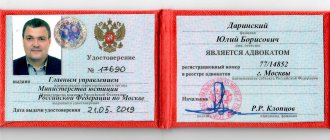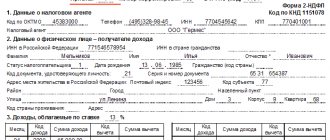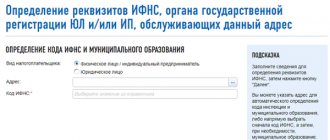Failure of tax inspectorate officials to comply with the essential conditions of the procedure for reviewing audit materials is an independent and unconditional basis for canceling the decision made based on the results of such review. This rule is enshrined in paragraph 14 of Art. 101 and paragraph 12 of Art. 101.4 Tax Code of the Russian Federation. Based on these norms, a higher tax authority or court may recognize a non-normative legal act of the inspectorate as invalid. Moreover, if it is established that procedural violations on the part of controllers are of a significant nature, there is no need to consider the tax dispute on its merits (clause 73 of the Resolution of the Plenum of the Supreme Arbitration Court of the Russian Federation dated July 30, 2013 No. 57). How have the judiciary recently dealt with disputes in which taxpayers alleged violations of their rights at the stage of considering audit materials and making decisions on them? Which procedural violations do the arbitrators recognize as significant and which not? You will learn the answers to these questions from a review of judicial practice.
Judicial acts in favor of taxpayers.
As an example, let us cite the Resolution of the Federal Antimonopoly Service of the Far East Branch of March 11, 2014 No. F03-557/2014.
After the completion of the on-site audit, the tax inspectorate made attempts for three months to notify the organization of the time and place of consideration of the results of control activities. The situation was complicated by the fact that the location of the company’s management bodies, which is its legal address, was significantly removed (over 500 km) from the location of the inspection. In addition, the organization's postal address did not coincide with its legal address.
Initially, consideration of the audit results was scheduled by the tax authority for September 20, 2012. The inspectors sent the corresponding notice a month before the specified date to the legal and postal addresses of the organization. Subsequently, the consideration was postponed three times, since at the next appointed date the inspectorate did not have information about the delivery of registered letters to the taxpayer (all correspondence was received, but late). Inspectors have repeatedly tried to serve representatives of the public (albeit unsuccessfully) with notices about the time of consideration of the inspection materials, visiting the legal and postal addresses. Telegrams were sent to the same addresses.
Articles 101 and 101.4 of the Tax Code of the Russian Federation do not contain any reservations about the need to notify the taxpayer of the time and place of consideration of the audit materials in any specific way, in particular by sending a registered letter by mail with return receipt requested or delivering it to the addressee against signature. In this regard, the said notification cannot be considered improper only on the grounds that it was carried out in some other way, for example by sending a telephone message, telegram, fax or electronic transmission via TKS (clause 41 of the Resolution of the Plenum of the Supreme Arbitration Court RF No. 57).
As a result, the review took place at the appointed time on November 16, 2012, in the absence of the taxpayer - but only after the inspectorate received information that registered mail with the next notice was delivered to the representative of the organization on November 13, 2012 (a copy of the postal notice at the request of the tax authority was received from the post office at fax).
The courts of three instances rejected the inspectorate's arguments about compliance with the decision-making procedure. The arbitrators found that the letter, which contained a notice of the time and place of consideration of the audit materials, was issued at the post office to an unidentified person unrelated to the taxpayer. The controllers did not confirm the authority of this person with the corresponding power of attorney. The judges also did not recognize the facsimile copy of the postal notification of delivery of the registered letter. The tax authorities did not register this document as an incoming document. Consequently, the tax authority did not have evidence that the said copy was in the inspectorate on the date of reviewing the results of the audit and making a decision (11/19/2012). The original postal notice with a mark of delivery of the correspondence was received by the inspectorate on November 19, 2012.
In connection with these circumstances, the arbitrators came to the conclusion: the tax authority did not provide
the taxpayer
the opportunity
to take part in the consideration of the audit materials, since the decision to prosecute was made in the absence of the applicant, who was not properly notified.
Judges make similar conclusions quite often. They believe that at the time of reviewing the audit materials and making a decision, the tax authority is obliged
have not information about the sending of registered letters and other items, but
evidence of their delivery
to the person being checked.
The arbitrators note that within the meaning of clause 3 of Art. 101 of the Tax Code of the Russian Federation, the head (deputy head) of the inspection has the right to make a decision to consider the results of control activities without the participation of the taxpayer only
when notified in the prescribed manner. Recognition of the latter as having been properly notified of the consideration of the inspection materials by sending him a corresponding notification, regardless of its receipt by the addressee in accordance with the provisions of Art. 101 of the Tax Code of the Russian Federation is not provided for. This position is set out, for example, in the resolutions of the FAS MO dated January 24, 2014 No. F05-17623/2013, No. F05-16692/2013 dated January 20, 2014, FAS VSO dated February 25, 2014 No. A19-1342/2013, FAS North Kazakhstan region dated July 13. 2012 No. A32-11821/2011, etc.
However, there is also other judicial practice.
Judicial acts in favor of tax authorities.
Proof of this statement is Resolution of the Federal Antimonopoly Service of the Central District of February 13, 2014 No. A09-4108/2013. The tax authority's problems began already at the stage of handing over the on-site inspection report. The summons sent to the entrepreneur to appear at the tax authority to hand over the report was returned to the inspectorate. Then the inspectors decided to visit the taxpayer themselves and went to his registered address. But in vain: the entrepreneur was not there. Since it was not possible to deliver the act in person, it was sent by mail. And this correspondence was also returned to the tax authority.
The inspectors took similar actions to serve the taxpayer with notice of the time and place of consideration of the audit materials. Tax officers went to the place of registration of the person being inspected, sent registered letters, and sent telegrams. All to no avail. Therefore, the inspectors had no choice but to consider the results of the inspection and make an appropriate decision in the absence of the entrepreneur.
According to the taxpayer, by such actions the tax authority violated the procedure for bringing to tax liability, since the decision was made without his participation and without evidence of proper notification of the date and time of consideration of the on-site audit materials. The courts of three instances concluded that the tax authority did not violate the law. Arguing for this decision, the arbitrators indicated the following.
The inspectorate sent a notice of summoning the taxpayer to review the audit materials to the proper address. After all, the entrepreneur did not enter information about a change of residence into the Unified State Register of Individual Entrepreneurs, did not notify the tax authority about his actual place of residence, and did not submit requests to the tax authority for correspondence to be sent to him at any other addresses, in particular to the address of his representative. Therefore, the taxpayer’s failure to receive postal correspondence sent to his address is not due to the actions of the inspectorate or the postal authority, but to the actions of the taxpayer himself and his actual absence at the place of registration. The judges emphasized: the obligation to receive correspondence at the address that is the place of registration is assigned to the entrepreneur, regardless of actual residence at this address.
As a result, the arbitrators decided: the tax authority properly notified the taxpayer of the time and place of consideration of the audit materials, therefore, the procedure for bringing the entrepreneur to tax liability was not violated.
And this is not the only judicial act. For example, in Resolution No. A22-1744/2011 of the Federal Antimonopoly Service of North Kazakhstan Region dated February 22, 2013, the arbitrators rejected the taxpayer’s argument that he had not received any correspondence at his legal address. Failure to receive registered letters is a taxpayer's risk, and he suffers adverse consequences associated with a dishonest attitude to his duties. According to the judges, the company, without being at its legal address and without declaring a change in its location, deliberately created conditions that prevented the inspectorate from carrying out tax control, thereby violating the requirements of paragraphs. 7 clause 1 art. 23 Tax Code of the Russian Federation. Therefore, the applicant is not subject to the provisions of paragraph 14 of Art. 101 of the Tax Code of the Russian Federation guarantees the protection of the rights of bona fide taxpayers.
A similar approach was used by judges in decisions of the FAS Far Eastern Military District dated January 31, 2014 No. F03-6884/2013, FAS VSO dated December 4, 2013 No. A19-3547/2013 [1], FAS SZO dated December 2, 2013 No. A42-7899/2011, FAS MO dated September 12, 2013 No. A40-60523/12, etc.
The payer is not familiar with all the audit materials.
Clause 3.1 of Art. 100 of the Tax Code of the Russian Federation establishes that the tax authority must attach to the tax audit report documents confirming facts of violation of the legislation on taxes and fees identified during control activities. In this case, documents received from the person being inspected are not attached to the act.
From the legal position of the Presidium of the Supreme Arbitration Court, set out in Resolution No. 15726/10 dated November 8, 2011, it follows: the taxpayer’s right to timely familiarization with all materials
received by inspectors as part of their inspections is his inalienable
right
. However, in order to recognize the fact of a violation of the essential conditions of the tax audit procedure, resulting in the payer’s inability to familiarize himself with these materials and submit appropriate objections, it is not enough to indicate that he has such a right. Therefore, before canceling a decision on formal grounds, you should find out what documents and information are being discussed and how such information affects the conclusions of the tax authority recorded in the tax audit report.
In other words, the inspectors’ violation of clause 3.1 of Art. 101 of the Tax Code of the Russian Federation does not yet mean that their decision will be declared invalid by the court on procedural grounds. In each specific case, the arbitrators examine the case materials and give them an appropriate assessment.
Let's give an example - Resolution of the FAS VSO dated January 30, 2014 No. A78-1414/2013. The taxpayer challenged the inspectorate's decision in court, including on formal grounds. According to the claim, the tax authority did not attach all the documents named in this act to the on-site inspection report: there were no copies of statements of transactions on the accounts of counterparties, inspection reports, or information from the information resources of the tax service. This, in the opinion of the person being inspected, violated his rights to protect his interests.
The judicial authorities recognized the taxpayer's arguments as justified. The judges decided: these circumstances deprived him of the opportunity to verify the authenticity of these documents, give a legal assessment of the admissibility and relevance of the evidence obtained confirming his guilt in committing a tax offense, and, accordingly, present his explanations and objections on the merits of the violations established by the inspection.
Supporting the taxpayer, the arbitrators noted: not only the full reflection of the identified violations in the tax audit report, but also the subsequent study and drawing up of objections by the taxpayer to it are a prerequisite
implementation by the tax authority of further procedures for holding the taxpayer accountable. Therefore, the inspection’s failure to comply with the requirements of clause 3.1 of Art. 100 of the Tax Code of the Russian Federation influenced the objectivity of the consideration of audit materials and deprived the organization of the opportunity to fully exercise the right to protect interests. Consequently, the violation committed must be qualified as significant and constitute a basis for invalidating the inspection decision.
Similar conclusions were made in the resolutions of the Federal Antimonopoly Service of the North Caucasus Region dated 02/13/2014 No. A53-5717/2013, No. A53-28709/2012 dated 07/08/2013, and No. A78-4232/2012 of the FAS VSO dated 02/15/2013.
The arbitrators of the FAS ZSO (Resolution No. A70-1252/2013 dated February 27, 2014) also came to the conclusion that the inspectorate committed procedural violations in the form of failure to send to the taxpayer all the necessary documents (including the protocol of interrogation of a witness). However, the judges found the following facts:
- the company has received an on-site inspection report and objections have been submitted to it;
- excerpts from the controversial protocol of the interrogation of the witness are given in the report;
- taxpayer representatives are familiar with the documents collected by inspectors during tax control activities;
- the society is provided with the opportunity to participate in the process of reviewing tax audit materials;
- the taxpayer did not indicate what specific rights and legitimate interests were violated on the merits when the inspectorate did not send the controversial interrogation protocol and how this violation affected his right to challenge the conclusions of the tax authority on the merits.
As a result, the arbitrators did not recognize the violation as significant enough to cancel the inspection decision for the reason specified by the taxpayer.
The judges took a similar position when making decisions of the FAS ZSO dated September 25, 2013 No. A27-19122/2012, FAS TsO dated March 18, 2014 No. A35-2512/2013.
Interesting, in our opinion, is the situation considered by the arbitrators of the FAS MO (Resolution No. F05-532/2014 dated February 20, 2014). The taxpayer considered that the inspection violated the audit procedure by not providing him with copies of requests and responses from counterparty banks. This did not allow the organization to find out whether these documents were received directly as part of the on-site inspection. The taxpayer believes that, by virtue of clause 14 of Art. 101 of the Tax Code of the Russian Federation, these circumstances are grounds for canceling the inspection decision.
The court did not agree with the taxpayer. The arbitrators found that, as attachments to the inspection report, the company was given copies of bank statements of its counterparties. According to the judges, the requests sent by the inspectors to the bank for the presentation of these statements do not contain facts indicating a violation of tax legislation by the taxpayer. Therefore, they should not be included in the appendices to the inspection report. Consequently, there are no violations of the audit procedure on the part of the tax authority.
The procedure and deadlines for filing a complaint with a higher tax authority or a higher official
A complaint against an act of a tax authority, actions or inaction of its official is filed with a higher tax authority or a higher official of this body.
As a general rule, a complaint to a higher tax authority (superior official) is filed within three months from the day the taxpayer learned or should have learned about the violation of his rights. Supporting documents may be attached to the complaint.
If the deadline for filing a complaint is missed for a good reason, this deadline, at the request of the person filing the complaint, can be restored by a higher official of the tax authority or a higher tax authority, respectively.
The complaint is submitted in writing to the relevant tax authority or official.
A person who filed a complaint with a higher tax authority or a higher official, before a decision is made on this complaint, may withdraw it on the basis of a written application. Withdrawal of a complaint deprives the person who filed it of the right to file a second complaint on the same grounds to the same tax authority or to the same official.
Resubmission of the complaint to a higher tax authority or a higher official is carried out within the established time frame.
Consideration and preparation of decisions of the Federal Tax Service on complaints from taxpayers against decisions of tax authorities on audit reports in accordance with Art. 140 of the Tax Code of the Russian Federation is implemented by the Legal Department.
Violations not related to the consideration of inspection materials.
Failure to meet inspection deadlines.
Articles 88 and 89 of the Tax Code of the Russian Federation establish the deadlines for conducting desk and on-site inspections. Is failure to comply with these deadlines grounds for declaring the tax authority’s decision illegal on formal grounds? There is no consensus among judicial authorities on this matter. As an example, here are two judicial acts from the same district.
FAS North Caucasus in Resolution No. A53-33611/2012 dated February 17, 2014 supported the position of the taxpayer, the decision on the desk audit in respect of which was made fifteen months after the expiration of the relevant period. The judges decided that the tax authority violated the principle of the inadmissibility of excessive or unlimited application of tax control measures. The inspectorate did not provide convincing evidence of the validity of such a long period of inspection.
The arbitrators noted the following. By virtue of Art. 88 of the Tax Code of the Russian Federation, the tax authority is obliged to carry out verification activities in relation to the tax return it has accepted within the established three-month period. Therefore, in the absence of the fact of requesting any information and documents within the specified period, the taxpayer had the right to assume that the inspectorate had no doubts about the legality of applying the tax amounts declared in the declaration. Moreover, the tax authority did not take any action not only within the period established for the audit, but also within ten months from the date of filing the tax return.
The long period of verification in the case under consideration was assessed by the arbitrators, based on specific circumstances, as violating the goals of tax administration, which cannot be of a discriminatory nature that impedes the entrepreneurial activity of the taxpayer. The result of the trial is that such a violation of the inspection procedure is significant and in accordance with paragraph 14 of Art. 101 of the Tax Code of the Russian Federation serves as the basis for canceling the decision of the tax authority.
Another example is Resolution No. A53-33617/2012 of the Federal Antimonopoly Service of the North Caucasus Region dated January 31, 2014. The desk audit ended with a decision a year after filing the declaration. The judges concluded that this fact does not affect the legality of the decision. Arguing their conclusion, they referred to clause 9 of the Information Letter of the Presidium of the Supreme Arbitration Court of the Russian Federation dated March 17, 2003 No. 71. This document explained: when applying Art. 88 of the Tax Code of the Russian Federation, one should proceed from the fact that the period established by it is not preemptive; its expiration does not prevent the identification of facts of non-payment of tax and the adoption of measures for its forced collection.
Having assessed the nature of the procedural violations committed by the tax authority and their impact on the legality and validity of the decision made, the cassation court came to the conclusion that there were no significant violations of the desk audit procedure. Moreover, the arbitrators blamed the taxpayer himself for the fact that the audit took so long. The judges pointed out the dishonesty of his behavior: the entrepreneur did not provide the inspection with explanations and documents confirming the accuracy of the data included in the declaration. Therefore, the inspectors were forced to request these documents from other persons, which was partly the reason for the violation of the deadline for conducting the desk audit.
Right to appeal
The actions and decisions of tax authorities and their officials often do not satisfy the taxpayer and are often illegal. Therefore, the right to appeal acts of tax authorities, actions or inactions of their officials becomes the main guarantee of respect for the rights and legitimate interests of taxpayers.
So, according to Art. 137 of the Tax Code of the Russian Federation, every taxpayer or tax agent has the right to appeal against acts of tax authorities of a non-regulatory nature, actions or inactions of their officials, if, in the opinion of the taxpayer or tax agent, such acts, actions or inactions violate their rights.
Regulatory legal acts of tax authorities can be appealed in the manner prescribed by federal legislation.
The taxpayer has the right to choose where to complain about, in his opinion, unlawful actions and decisions of tax inspectors:
1) to a higher tax authority (higher official);
2) to court (Articles 137 and 138 of the Tax Code of the Russian Federation provide for the right of the taxpayer to judicially appeal the act of the tax authority).
It should be especially noted that filing a complaint with a higher tax authority (superior official) does not exclude the right to simultaneous or subsequent filing of a similar complaint with the court.
When interpreting Art. 137-138 of the Tax Code of the Russian Federation, it should be taken into account that the concept of “act” is used in them in a different meaning than in Art. 100, 101.1 (clause 1) of the Tax Code of the Russian Federation.
When applying Art. 137 and 138 of the Tax Code of the Russian Federation, it is necessary to proceed from the fact that an act of a non-normative nature, which can be challenged in an arbitration court by presenting a demand for recognition of the act as invalid, is understood as a document of any name (demand, decision, decree, letter, etc.), signed by the head (deputy head) of the tax authority and relating to a specific taxpayer.
In addition, since the Tax Code of the Russian Federation does not establish otherwise, the taxpayer has the right to appeal to the court the requirement to pay tax, penalties and the requirement to pay a tax sanction, regardless of whether he challenged the decision of the tax authority on the basis of which the corresponding requirement was made.
Judicial appeal of acts (including regulations) of tax authorities, actions or inactions of their officials by organizations and individual entrepreneurs is carried out by filing a statement of claim with the arbitration court in accordance with arbitration procedural legislation.
Judicial appeal of acts (including regulations) of tax authorities, actions or inactions of their officials by individuals who are not individual entrepreneurs is carried out by filing a statement of claim in a court of general jurisdiction in accordance with the legislation on appealing to court unlawful actions of state bodies and officials .
If a decision is made on the taxpayer’s complaint in accordance with sub. 2 p. 2 art. 140 of the Tax Code of the Russian Federation, the following must be kept in mind.
An additional inspection is appointed as part of the consideration of the taxpayer’s complaint (Chapter 20 of the Tax Code of the Russian Federation), i.e. resolution of a tax dispute, in contrast to a tax audit carried out as part of tax control (Chapter 14 of the Tax Code of the Russian Federation).




